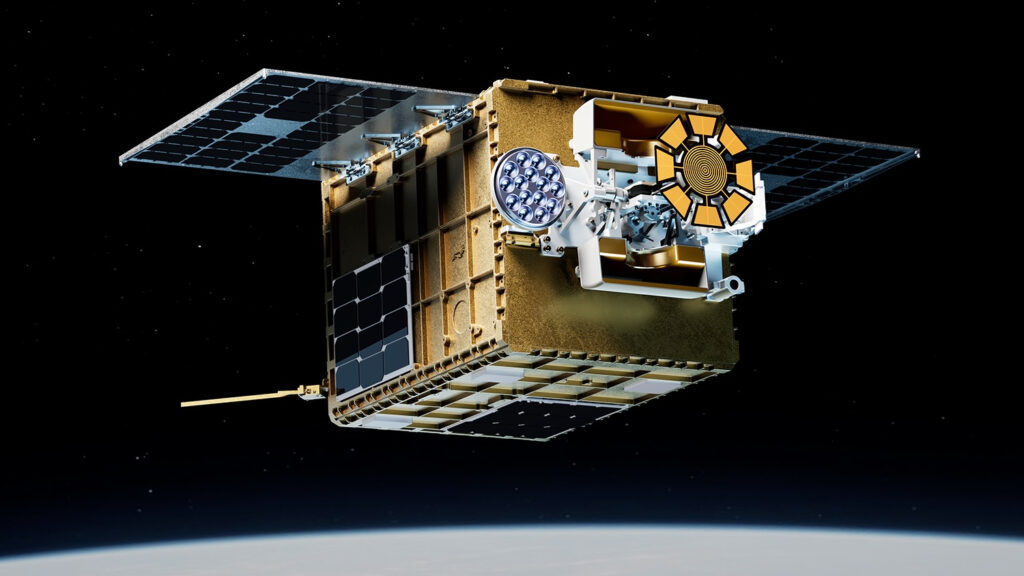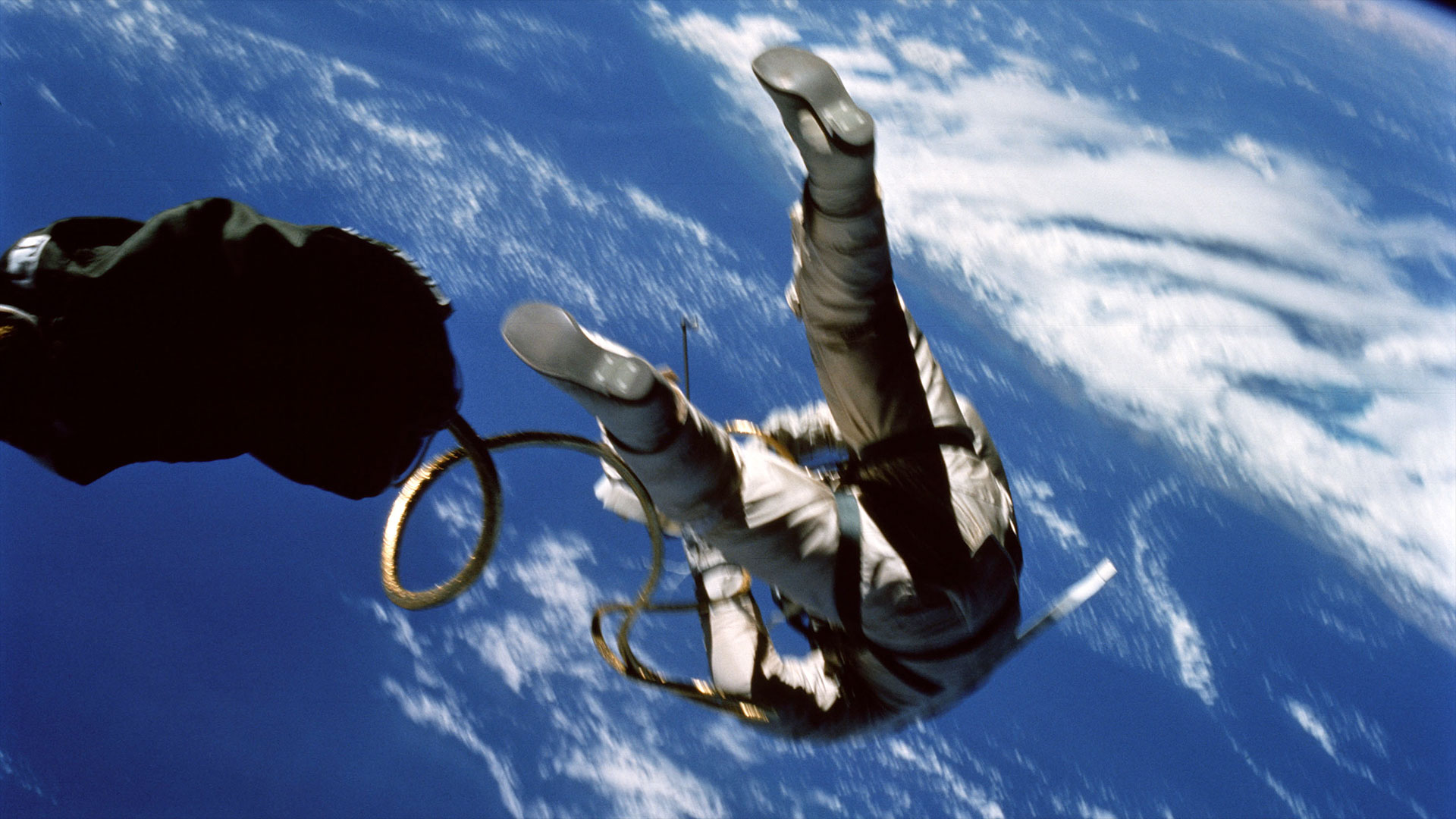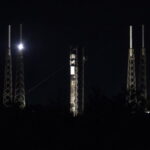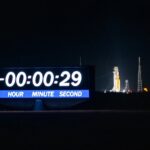Now Reading: ‘Starship in space’: See amazing photos from SpaceX megarocket’s Flight 9 test mission
-
01
‘Starship in space’: See amazing photos from SpaceX megarocket’s Flight 9 test mission
‘Starship in space’: See amazing photos from SpaceX megarocket’s Flight 9 test mission
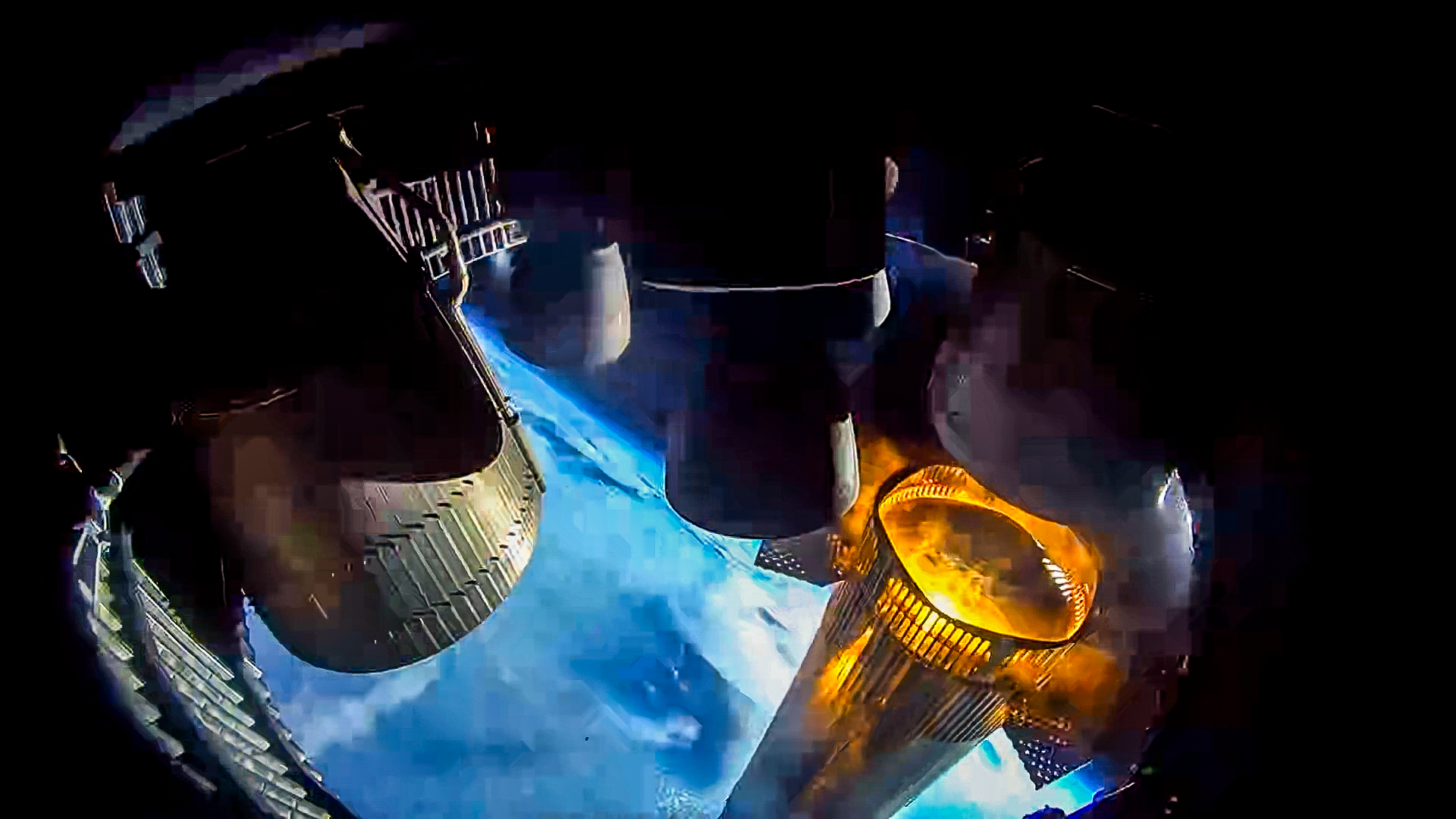
SpaceX’s Starship megarocket tends to put on a show, and its latest test flight was no exception.
That mission, the ninth ever for the roughly 400-foot-tall (122 meters) Starship, lifted off from SpaceX‘s Starbase site in South Texas last Tuesday (May 27).
Flight 9 delivered some amazing visuals, which we saw live courtesy of SpaceX’s launch webcast — and after the fact as well, via video clips and photos the company posted on X.
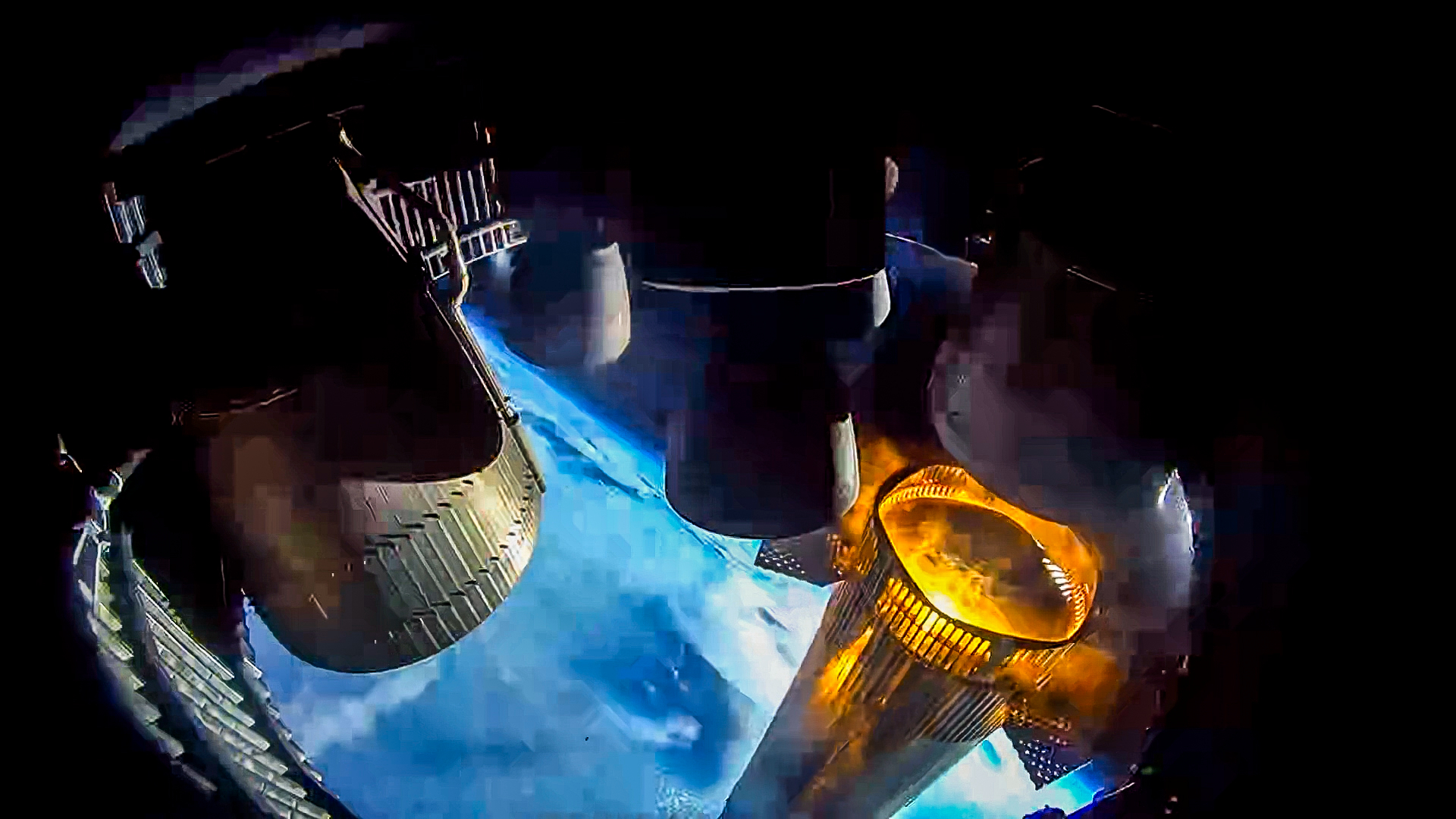
One post on Saturday (May 31) shared four pictures, along with a caption that was short and sweet: “Starship in space.”
One of those photos was taken not long after the megarocket reached the final frontier; the Gulf of Mexico and the shoreline near Starbase are clearly visible, as is the plume that Starship generated during launch.
Another shot was snapped just after separation of the vehicle’s two elements — the Super Heavy booster and Ship upper stage. This photo, taken from within Ship’s engine bay, shows Super Heavy falling away, orange flame licking at its top, with the blue curve of Earth in the background.
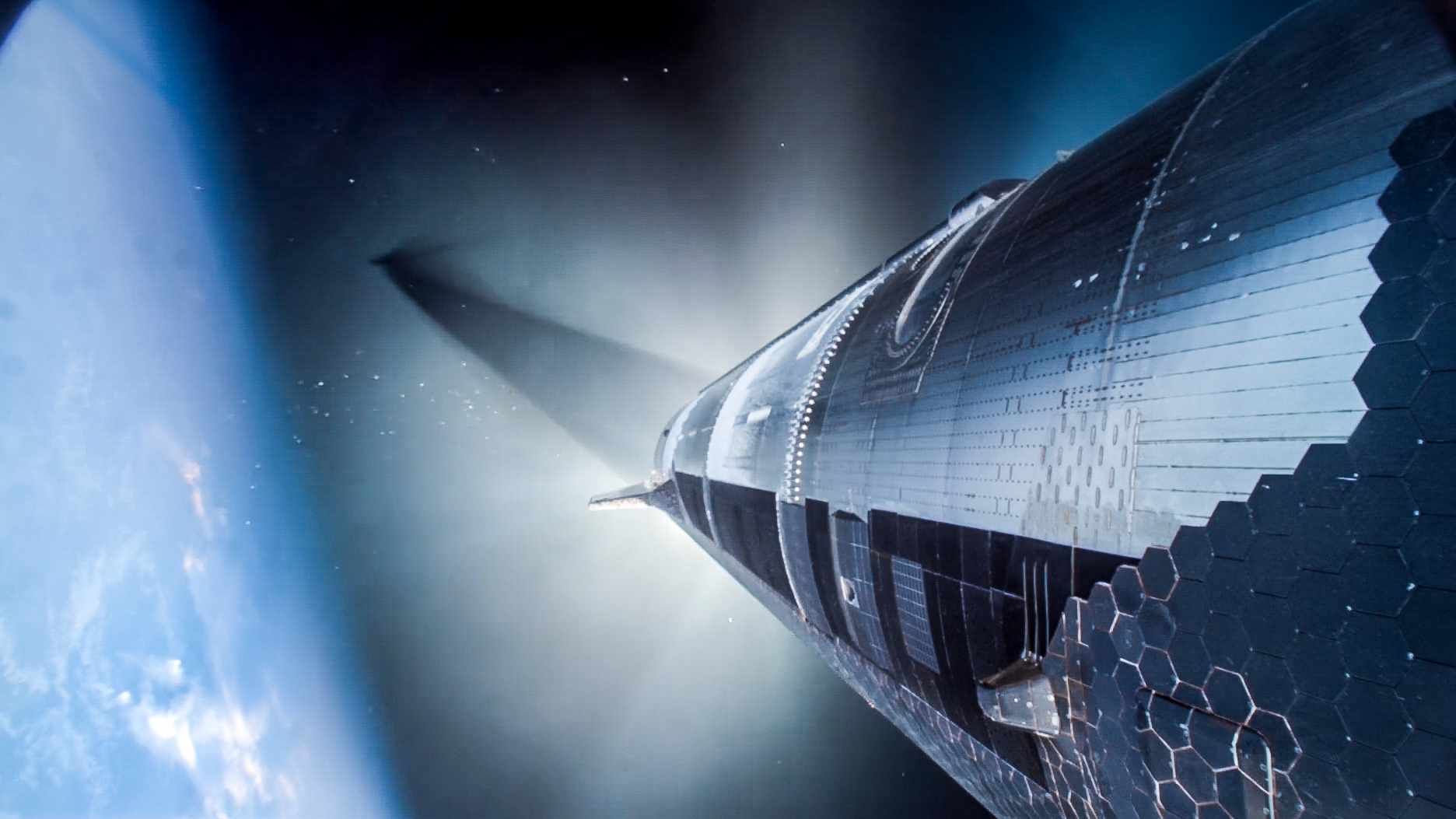
It was the second return to Earth for this particular Super Heavy; it first flew this past in January, on Starship’s Flight 7. On that flight, the booster returned to Starbase, where it was caught by the launch tower’s “chopstick” arms about seven minutes after liftoff.
There was never going to be a third launch for this Super Heavy. SpaceX conducted a number of in-flight experiments with the booster last Tuesday and therefore steered it toward a “hard splashdown” in the Gulf of Mexico for safety’s sake.
The vehicle didn’t make it to the water in one piece on Flight 9, however; it broke apart about six minutes and 20 seconds post-launch, just after beginning its landing burn.
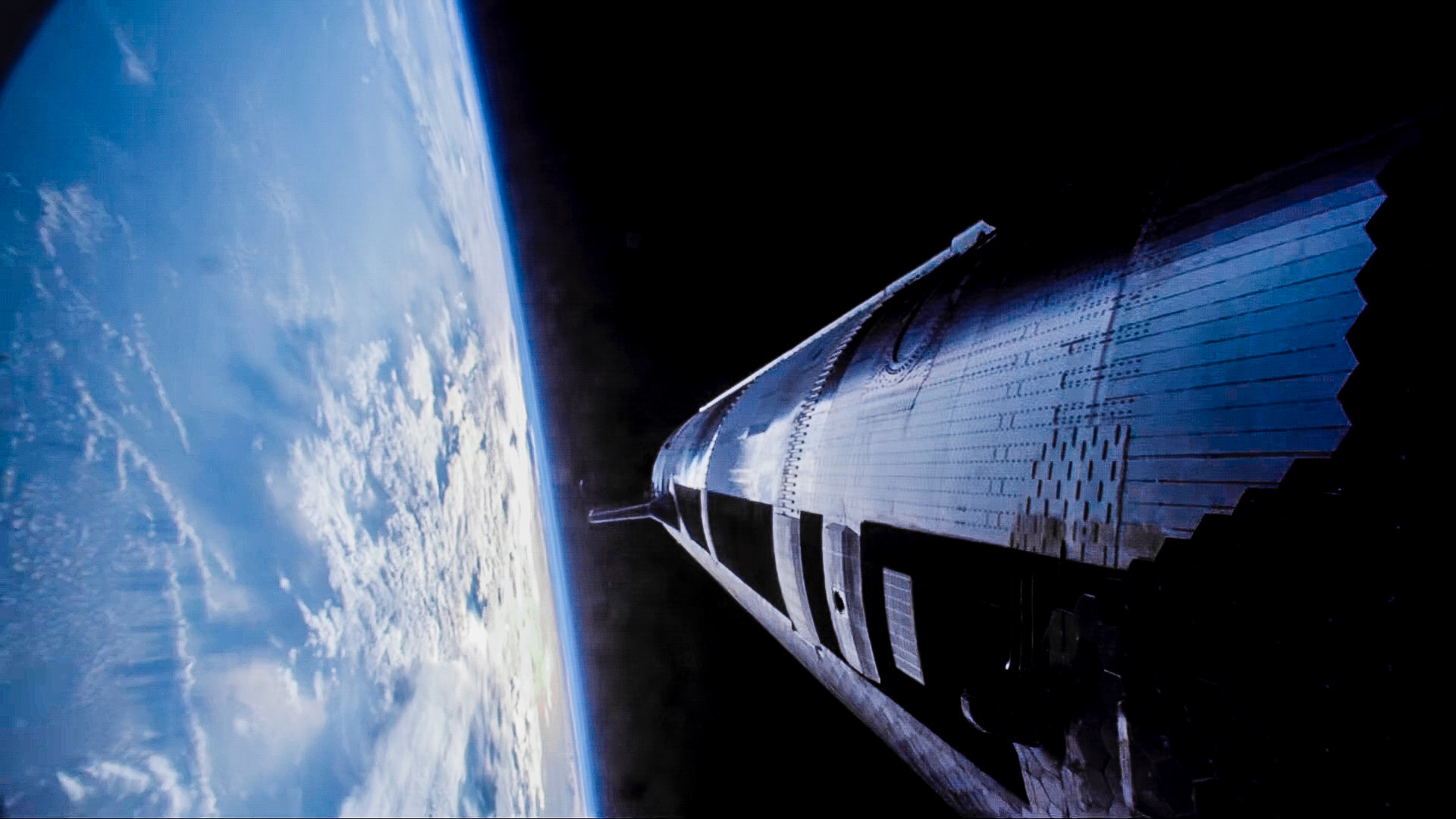
Ship suffered a “rapid unscheduled disassembly” on Flight 9 as well. The upper stage reached space on a suborbital trajectory, but it did not splash down softly off the coast off Western Australia as planned.
The vehicle began tumbling about 30 minutes after launch, apparently due to a propellant leak, SpaceX representatives said during the Flight 9 webcast.
“Contact with Starship was lost approximately 46 minutes into the flight, with all debris expected to fall within the planned hazard area in the Indian Ocean,” SpaceX wrote in a Flight 9 recap.
Related stories:
SpaceX is developing Starship — the biggest and most powerful rocket ever built — to help humanity settle Mars, among other ambitious goals.
The company plans to get the giant rocket back on the launch pad soon, to continue working out its kinks and get it closer to operational status.
“Data review is underway, and new improvements will be implemented as work begins to prepare the next Starship and Super Heavy vehicles for flight,” the company wrote in the Flight 9 recap. “Developmental testing by definition is unpredictable, but every lesson learned marks progress toward Starship’s goal of enabling life to become multiplanetary.”
Stay Informed With the Latest & Most Important News
Previous Post
Next Post
Previous Post
Next Post
-
 01Two Black Holes Observed Circling Each Other for the First Time
01Two Black Holes Observed Circling Each Other for the First Time -
 02From Polymerization-Enabled Folding and Assembly to Chemical Evolution: Key Processes for Emergence of Functional Polymers in the Origin of Life
02From Polymerization-Enabled Folding and Assembly to Chemical Evolution: Key Processes for Emergence of Functional Polymers in the Origin of Life -
 03Astronomy 101: From the Sun and Moon to Wormholes and Warp Drive, Key Theories, Discoveries, and Facts about the Universe (The Adams 101 Series)
03Astronomy 101: From the Sun and Moon to Wormholes and Warp Drive, Key Theories, Discoveries, and Facts about the Universe (The Adams 101 Series) -
 04Φsat-2 begins science phase for AI Earth images
04Φsat-2 begins science phase for AI Earth images -
 05Hurricane forecasters are losing 3 key satellites ahead of peak storm season − a meteorologist explains why it matters
05Hurricane forecasters are losing 3 key satellites ahead of peak storm season − a meteorologist explains why it matters -
 06Thermodynamic Constraints On The Citric Acid Cycle And Related Reactions In Ocean World Interiors
06Thermodynamic Constraints On The Citric Acid Cycle And Related Reactions In Ocean World Interiors -
 07Binary star systems are complex astronomical objects − a new AI approach could pin down their properties quickly
07Binary star systems are complex astronomical objects − a new AI approach could pin down their properties quickly














